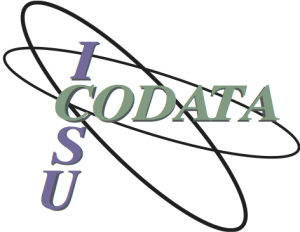Reproduced from the GO FAIR website https://www.go-fair.org/2018/02/08/go-fair-training-go-train-kicked-off/ 
On 26 January 2018, more than 20 people attended the GO TRAIN kick-off meeting in Leiden (the Netherlands). GO TRAIN is one of three GO FAIR pillars. Hugh Shanahan (Royal Holloway, University of London): “We used the meeting to discuss how to instigate a concerted action of global FAIR data training providers.”
Barend Mons (GO FAIR International Support and Coordination Office, GFISCO): “The High Level Expert Group report on the EOSC mentions an urgent need to educate and equip up to 500,000 data stewards in Europe. The GO TRAIN pillar will train individuals that will make the best use of FAIR data and services as well as data stewards that are capable of providing those services. The GFISCO will support and coordinate the GO TRAIN pillar. The guiding principles of GO 
Presentations
The January 2018 meeting was entitled ‘Realising GO TRAIN – a concerted action by global data training providers’ and it aimed to establish the scope, specific goals, and foreseen activities of GO TRAIN. In addition, it aimed to define the next steps towards realising one or more formal GO TRAIN Implementation Networks (INs). GO FAIR INs are consortia of individuals, institutions, projects, and international organisations who have decided to jointly implement the FAIR principles in their fields towards the goals of GO FAIR.
The meeting was organised by Hugh Shanahan, Simon Hodson (CODATA), Celia van Gelder (DTL/ELIXIR-NL), and Mascha Jansen (GO FAIR). The meeting featured presentations by Barend Mons (GO FAIR) about the progress of GO FAIR, Hugh Shanahan about the management structure of GO TRAIN, Erik Schultes (GO FAIR) about current FAIR training activities, and Albert Mons (Euretos) about Other People’s Existing Data and Services (OPEDAS Implementation Network). Participants included a.o. representatives of CODATA-RDA Data Schools, DANS, DCC, EDISON, ELIXIR, DTL, and Foster.
Break-outs
Van Gelder: “During a number of break-out sessions, we discussed the overall scope and specific goals of GO TRAIN. In addition, we dedicated some sessions to the future activities of the GO TRAIN Implementation Networks. We discussed what a GO TRAIN IN can and should do to advance training-the-trainer events. And we also talked about an IN’s possible role in the certification or endorsement of training materials and activities.”
Implementation
In the closing session of the day, the participants discussed concrete steps towards the implementation of GO TRAIN. “A number of key decisions were made, in particular the details on GO TRAIN’s three main goals, i.e., developing an appropriate curriculum framework, approaches for endorsing developed materials and organisations teaching the materials, and developing a train-the-trainer programme,” concludes Shanahan.
About GO FAIR
GO FAIR (Global Open FAIR) is a self-governed, community-driven initiative to accelerate the early development of the Internet of FAIR Data and Services. GO FAIR originated in Europe, inspired by the European Commission’s High Level Expert Group on the European Science Cloud (EOSC). GO FAIR will be implemented by three pillars: GO CHANGE, GO BUILD, and GO TRAIN. GO CHANGE aims to instigate cultural change to make the FAIR principles a working standard in science and to reform reward systems to incorporate open science activities; GO BUILD deals with building the technical infrastructure; and GO TRAIN which will provide the training and in the future the mechanism for the standards-compliant certification.
